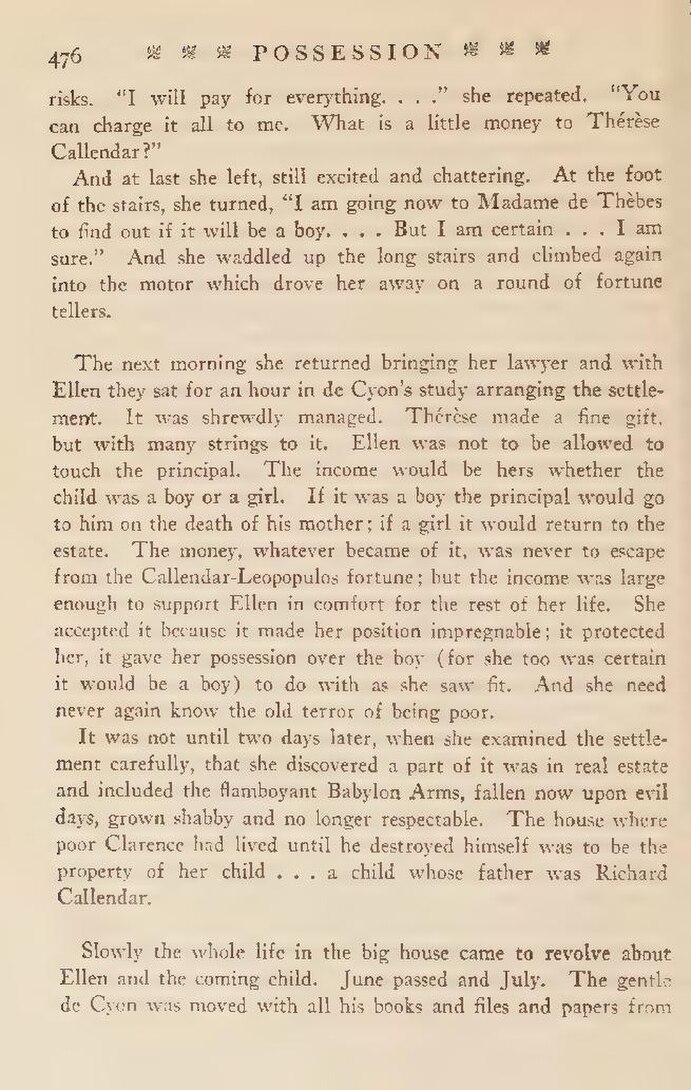risks. "I will pay for everything. . . ." she repeated. "You can charge it all to me. What is a little money to Thérèse Callendar?"
And at last she left, still excited and chattering. At the foot of the stairs, she turned, "I am going now to Madame de Thèbes to find out if it will be a boy. . . . But I am certain . . . I am sure." And she waddled up the long stairs and climbed again into the motor which drove her away on a round of fortune tellers.
The next morning she returned bringing her lawyer and with Ellen they sat for an hour in de Cyon's study arranging the settlement. It was shrewdly managed. Thérèse made a fine gift, but with many strings to it. Ellen was not to be allowed to touch the principal. The income would be hers whether the child was a boy or a girl. If it was a boy the principal would go to him on the death of his mother; if a girl it would return to the estate. The money, whatever became of it, was never to escape from the Callendar-Leopopulos fortune; but the income was large enough to support Ellen in comfort for the rest of her life. She accepted it because it made her position impregnable; it protected her, it gave her possession over the boy (for she too was certain it would be a boy) to do with as she saw fit. And she need never again know the old terror of being poor.
It was not until two days later, when she examined the settlement carefully, that she discovered a part of it was in real estate and included the flamboyant Babylon Arms, fallen now upon evil days, grown shabby and no longer respectable. The house where poor Clarence had lived until he destroyed himself was to be the property of her child . . . a child whose father was Richard Callendar.
Slowly the whole life in the big house came to revolve about Ellen and the coming child. June passed and July. The gentle de Cyon was moved with all his books and files and papers from
